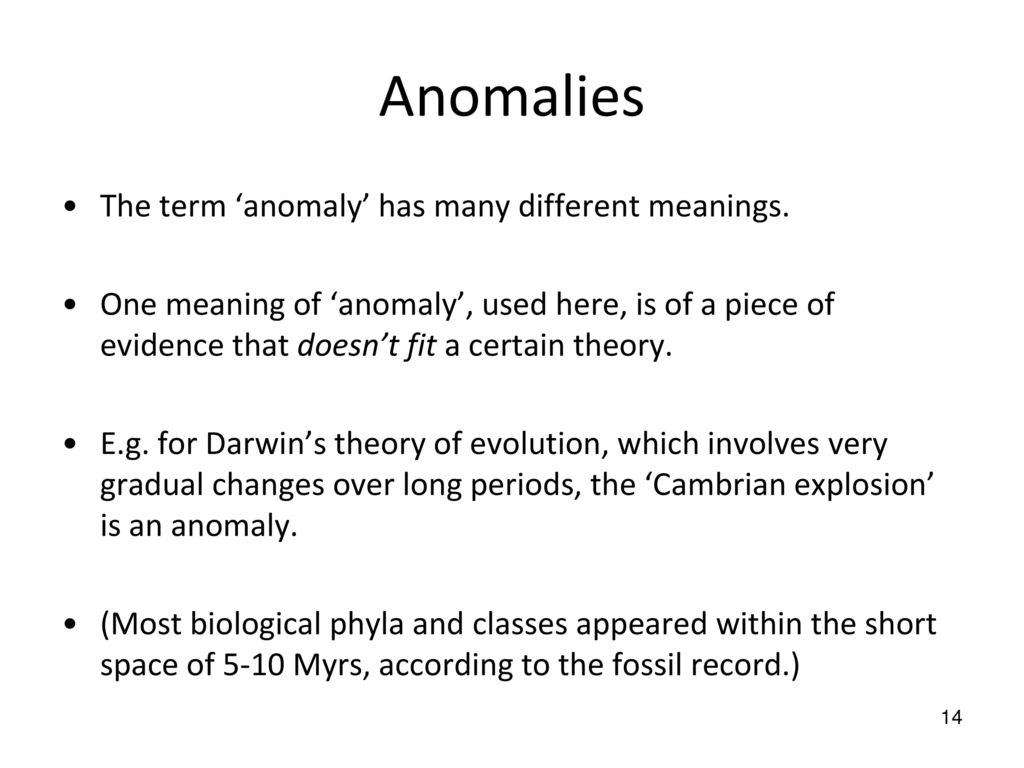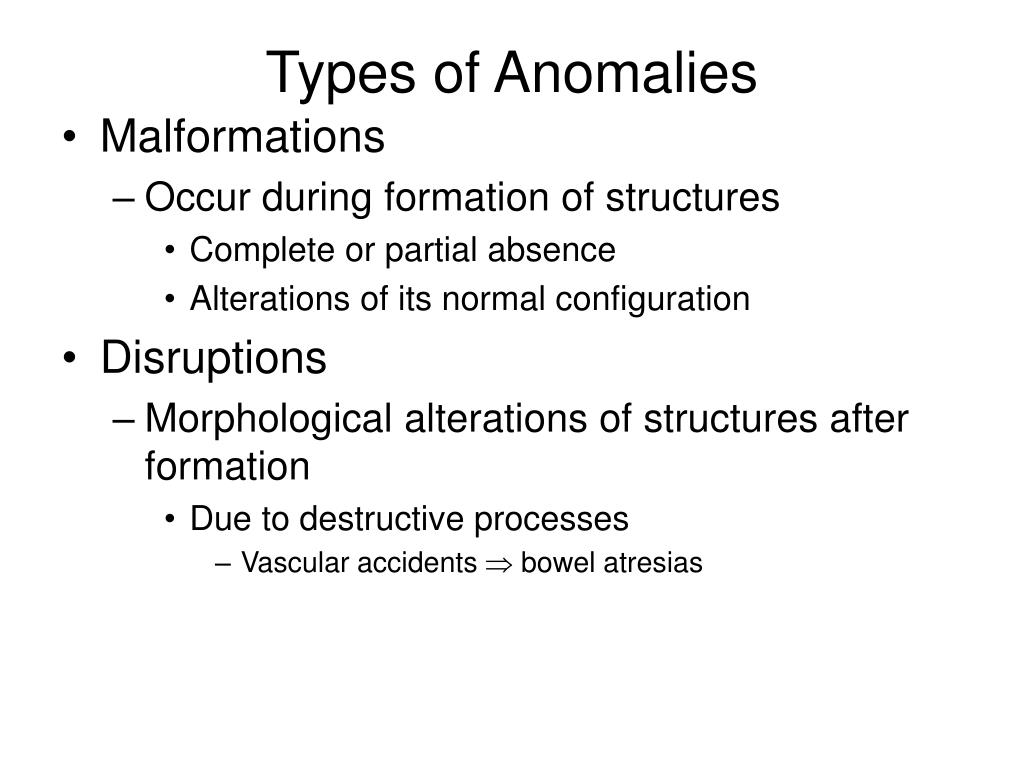Anomaly Meaning - What It Means When Things Don't Fit
Have you ever come across something that just doesn't seem to belong? Something that stands out, is a little out of place, or perhaps doesn't quite line up with what you expect? That feeling, that moment of noticing something that feels... off, is often your first encounter with what we call an anomaly. It's that moment when a pattern breaks, or a rule seems to bend, and you find yourself doing a double-take, wondering why this particular thing is different from the rest, you know?
Think about it for a moment. Our daily existence is, in a way, built on expectations. We anticipate certain outcomes, we follow established routines, and we tend to see things in categories that make sense to us. So, when something pops up that doesn't fit neatly into those familiar boxes, it catches our eye. It’s like a single red apple in a basket full of green ones, or perhaps a sudden calm in the middle of a very busy street. These small breaks from the usual are, essentially, what an anomaly is all about. It’s a concept that helps us describe those peculiar instances that challenge our general sense of how things ought to be, or how they usually are, really.
Understanding this idea of something being out of the ordinary is quite helpful, actually, because it helps us make sense of the world around us. It's not just about noticing something strange; it's about recognizing that there's a departure from the norm, a unique occurrence that might hold some interesting information. This piece will take a closer look at the anomaly meaning, exploring what it truly implies when something is described as such, and why recognizing these oddities can be quite important in various parts of our lives, as a matter of fact.
Table of Contents
- What's the Real Anomaly Meaning?
- When Does Something Become an Anomaly Meaning?
- How Do We Spot an Anomaly Meaning in Everyday Life?
- Why Does an Anomaly Meaning Matter?
- What Happens When We Find an Anomaly Meaning?
- Can an Anomaly Meaning Be a Good Thing?
- The Broader View of Anomaly Meaning
- Anomaly Meaning - A Look at Different Areas
What's the Real Anomaly Meaning?
At its very core, the anomaly meaning points to something that is just plain different. It’s a thing, a person, or even a situation that doesn't quite fit the mold, or what you'd typically expect. Imagine a collection of items, and one of them just doesn't match the others; that's the essence of it. It's not necessarily good or bad, just... unexpected. The idea comes up when something doesn't line up with a common way of doing things, a usual pattern, or a standard form. So, it's a departure, a kind of divergence from the typical or the expected, you know.
Picture a situation where everything usually goes a certain way, and then, suddenly, something happens that is quite out of the ordinary. That unexpected occurrence, that unusual event, or that strange condition, is what we often refer to as an anomaly. It's like a small hiccup on the regular flow of things, something that stands apart from the general pattern. The Collins Cobuild Advanced Learner's Dictionary, for instance, talks about it as an abnormality, a tiny blip that doesn't quite align with the rest of the overall design. It's a noticeable difference, basically, that catches your eye because it doesn't conform to the usual arrangement.
The Oxford Advanced Learner's Dictionary also gives a clear explanation, describing an anomaly as a noun that signifies something different from what is considered normal or expected. It covers its meaning, how you say it, a picture of what it might look like in a sense, how it's used in example sentences, its grammar, and even its synonyms. These resources really help paint a full picture of the anomaly meaning, showing that it’s about recognizing something that doesn't fit the established framework. It's that one piece of the puzzle that, for some reason, just doesn't seem to connect with the others, or so it appears.
When Does Something Become an Anomaly Meaning?
Something truly becomes an anomaly when it presents as a clear departure from the usual or the anticipated. Consider a dog breeder who specializes in black dogs, and then, quite unexpectedly, one of the puppies is born with pink fur. That pink puppy, in this particular setting, is a perfect example of an anomaly. It’s an instance where something is clearly different from what is typically seen or what is generally looked forward to. This isn't about being wrong; it's about being distinctively outside the usual set of characteristics, in a way.
The concept extends beyond just physical traits. Imagine a computer system running smoothly, following all its programmed instructions, and then suddenly, its software detects something odd, something that doesn't match its normal operations. If this strange occurrence is caused by a virus, that detection of the unusual behavior is, in fact, an anomaly. It's a sign that something has gone astray from the expected sequence of events, or the regular flow of data. The system flags it because it's a deviation from its standard, healthy state, which is quite important, you know.
The idea of something being an anomaly also pops up when we talk about people or things that simply don't fit in. For instance, if someone has a quiet nature and they come from a family that is known for being very lively and expressive, that quiet individual stands out. They are an anomaly within their boisterous family unit. Their calm demeanor is a clear contrast to the general energy of the group, making them a distinct and unusual presence in that specific environment. It's a matter of contrast, really, where one element just doesn't align with the prevailing characteristic.
How Do We Spot an Anomaly Meaning in Everyday Life?
Spotting an anomaly often comes down to noticing patterns and then recognizing when those patterns break. Our brains are, in a way, wired to look for consistency. So, when something unusual happens, it triggers a kind of internal alert. Think about weather. If you live in an area where it rarely, if ever, storms, and then a massive storm hits, that storm is an anomaly for your region. It’s an event that doesn't usually take place there, and its occurrence is quite unexpected, making it stand out as a unique weather incident, as a matter of fact.
Similarly, in more formal settings, like scientific experiments or medical check-ups, anomalies are detected when results don't conform to what is typical or healthy. If test results show something that can't be easily explained, those unexplainable findings are considered anomalies. A doctor, for instance, might find something during an examination that doesn't fit the usual signs of health; that finding is an anomaly. It’s a piece of information that deviates from the standard, making it a point of interest for further investigation, or so it seems.
The very act of identifying an anomaly means noticing a deviation from a rule or from what is considered normal. It involves recognizing an abnormality, a deviance, or an inconsistency. These are all words that point to something that is out of line with the expected order. The process is often about comparison: comparing the current situation or item to a known standard or a common type. If there's a significant difference, then you've likely found an anomaly, which can be quite intriguing to discover, you know.
Why Does an Anomaly Meaning Matter?
Recognizing the anomaly meaning is important because these unusual occurrences often signal something significant. Sometimes, they point to a problem, like the computer software detecting an anomaly caused by a virus. In this case, the anomaly isn't just a curiosity; it's a warning sign that something is wrong and needs attention. Ignoring such an anomaly could lead to bigger issues, so paying heed to these unusual signs is quite crucial for maintaining stability and proper function, in a way.
On the other hand, an anomaly can also highlight something exceptional or unique. Take, for instance, the reference to LBJ being an anomaly and a truly spectacular athlete. Here, the term isn't used to suggest a problem, but rather to point out an extraordinary individual who stands out from the crowd due to their remarkable abilities. This kind of anomaly is something to be admired, a rare example of outstanding performance that goes beyond the usual standards. It shows that being an anomaly isn't always about being problematic; sometimes, it's about being incredibly special, really.
Anomalies can also push us to think more deeply about established systems or rules. If a law contains an anomaly, meaning something within it is inconsistent or doesn't quite fit with its overall purpose, then that law might need to be changed. The source text mentions that a law was amended to remove such an anomaly. This shows that anomalies can be points of friction or unfairness within a system, prompting necessary adjustments to make things more consistent and fair. They force us to re-examine what we consider normal or correct, and sometimes, that leads to better ways of doing things, you know.
What Happens When We Find an Anomaly Meaning?
When an anomaly is spotted, the immediate reaction is often to try and explain it. Why is this different? What caused it? For example, if test results show anomalies, meaning things that don't fit the expected pattern, the next step is to investigate. Doctors or scientists will look for the reasons behind these unusual findings, perhaps running more tests or gathering additional information. The goal is to understand if the anomaly is a harmless variation or a sign of something that needs to be addressed, which is quite a process, actually.
Sometimes, an anomaly can be a simple exception to a general rule. It's something that doesn't fit in, but its existence doesn't necessarily break the whole system. It's just a single instance that stands apart. However, in other cases, like with the many anomalies in a tax system, these deviations can point to broader issues. These inconsistencies might mean that certain rules are unfair, outdated, or create unintended consequences. Finding these points of difference can lead to discussions about how to make the system more equitable or more efficient, or so it seems.
The apparent anomaly that those who produce wealth sometimes don't benefit from it as much as others highlights a complex issue within economic systems. This kind of anomaly isn't a simple deviation; it's a deep-seated inconsistency that challenges our notions of fairness and reward. When such an anomaly is brought to light, it often sparks debate and prompts people to consider how resources are distributed and whether the current arrangements are truly just. It forces a look at the underlying structures and can be a catalyst for calls for change, really.
Can an Anomaly Meaning Be a Good Thing?
While the word "anomaly" sometimes carries a slight hint of something being wrong, it's truly not always a negative thing. In fact, an anomaly can be a source of wonder, a sign of unique talent, or even a trigger for new discoveries. The pink puppy, while an anomaly for a black dog breeder, might just be the most adorable and special pup in the litter, captivating everyone with its unusual coloring. It challenges the norm in a charming way, making it quite memorable and distinct, you know.
In the world of sports, an athlete who is an anomaly, like LBJ, is celebrated for their exceptional abilities. They break records, perform feats that seem impossible, and inspire others. Their unusual level of skill isn't a problem; it's a marvel. Such anomalies push the boundaries of what we think is achievable, showing us that there's always room for extraordinary performance. They make us reconsider what's possible and often become legends in their own right, which is quite amazing, actually.
Even in scientific research, anomalies can be incredibly valuable. When scientists encounter results that don't fit their predictions, these "anomalies" are often where breakthroughs happen. They force researchers to question their assumptions, to look for new explanations, and sometimes, to completely rethink their understanding of how things work. What seems like an oddity at first might turn out to be the key to a deeper insight, leading to new knowledge or even entirely new fields of study. So, an anomaly can very much be a signpost pointing towards progress, or so it appears.
The Broader View of Anomaly Meaning
The concept of anomaly extends across many different fields, from the very precise world of data and science to the more fluid experiences of daily life. It’s a term used when something stands out because it doesn't align with the usual or the expected. Whether it's an unusual storm for a particular area, or a quiet person in an otherwise loud family, the core idea remains the same: a deviation from the common type, rule, or arrangement. It’s about recognizing that not everything fits neatly into predetermined categories, basically.
The usage of "anomaly" in sentences helps us grasp its full scope. When we say "a storm like that is an anomaly for this area," we are simply stating that such a storm does not usually happen there. It’s a way of highlighting the unusual nature of the event without necessarily assigning blame or judgment. Similarly, when we "couldn't explain the anomalies in the test results," it points to data points that are out of sync with what was anticipated, prompting further investigation to understand their origin, which is quite important for accuracy, you know.
Understanding the anomaly meaning also means recognizing its plural form: anomalies. We often encounter multiple instances of things that don't quite fit. For instance, a doctor might detect an anomaly in one test, and then another in a different one. These individual deviations, when grouped together, can reveal a larger pattern of unusual occurrences, or perhaps a systemic issue that needs addressing. It’s about seeing the individual oddities and how they contribute to a broader picture of what is different from the established norm, in a way.
Anomaly Meaning - A Look at Different Areas
The idea of an anomaly is not just for formal discussions; it pops up in casual talk too. It's a way of saying something is an exception, a departure, or an inconsistency. Think of it as that one thing that just doesn't blend in with the rest. The law, for example, might have an anomaly that needs to be fixed, meaning a part of it that doesn't quite make sense or seems unfair compared to the rest of the legal framework. Fixing these points helps make the law more consistent and just for everyone, really.
In business and economics, anomalies can be crucial signals. The "many anomalies in the tax system" point to areas where the rules might be creating unintended results or unfair burdens. These are not just minor quirks; they can impact people's lives and the economy as a whole. Identifying such anomalies is the first step towards making policy changes that lead to a fairer and more efficient system. It's about finding those parts that stick out and figuring out why they are there, you know.
Ultimately, the anomaly meaning describes a thing, a situation, or an event that is different from what is considered normal or expected. It’s a broad term that covers everything from a unique individual who stands out, to a strange reading on a machine, or even a systemic flaw in a large structure. Recognizing these points of difference helps us to question, to investigate, and sometimes, to appreciate the unusual, which is quite a valuable skill in a world that is full of surprises, as a matter of fact.
So, we've talked about how an anomaly is something that stands apart, whether it's a peculiar puppy, an unexpected storm, or a strange computer glitch. We've seen how it can be a warning sign, a mark of exceptional talent, or a prompt for necessary changes in systems like laws or taxes. It's about spotting those things that don't quite fit the usual pattern and understanding why they are different. This idea helps us make sense of the world by noticing what's typical and what, for some reason, isn't.



Detail Author:
- Name : Dr. Presley Klein
- Username : sophia86
- Email : jeromy06@roberts.com
- Birthdate : 1996-05-29
- Address : 453 Chanelle Roads Rossiechester, AL 68001-5377
- Phone : 708.482.0893
- Company : Rodriguez Ltd
- Job : Insulation Installer
- Bio : Consequatur dolorem qui non. Saepe cupiditate aliquam dolor possimus. Rem vitae quidem eum rerum. Nisi qui eos vero dolores qui similique.
Socials
twitter:
- url : https://twitter.com/demetrius_mitchell
- username : demetrius_mitchell
- bio : Quia qui et doloribus qui laborum laudantium. Et unde dolores placeat saepe aut ducimus. Repellendus eos ex quia dolores enim itaque voluptas.
- followers : 2721
- following : 1574
facebook:
- url : https://facebook.com/demetrius4195
- username : demetrius4195
- bio : Quam consequuntur quo voluptatibus provident unde sunt est dolorem.
- followers : 6034
- following : 298
tiktok:
- url : https://tiktok.com/@demetrius_real
- username : demetrius_real
- bio : Corporis debitis molestias laborum quam corrupti quo. Amet quia illo pariatur.
- followers : 1516
- following : 286
instagram:
- url : https://instagram.com/demetrius2685
- username : demetrius2685
- bio : Id sed aperiam ut ipsam. Sit quo quod excepturi et ab iste. Praesentium eum id perspiciatis.
- followers : 5126
- following : 1346
linkedin:
- url : https://linkedin.com/in/demetrius2869
- username : demetrius2869
- bio : Aut nam praesentium temporibus earum voluptas.
- followers : 5618
- following : 2614